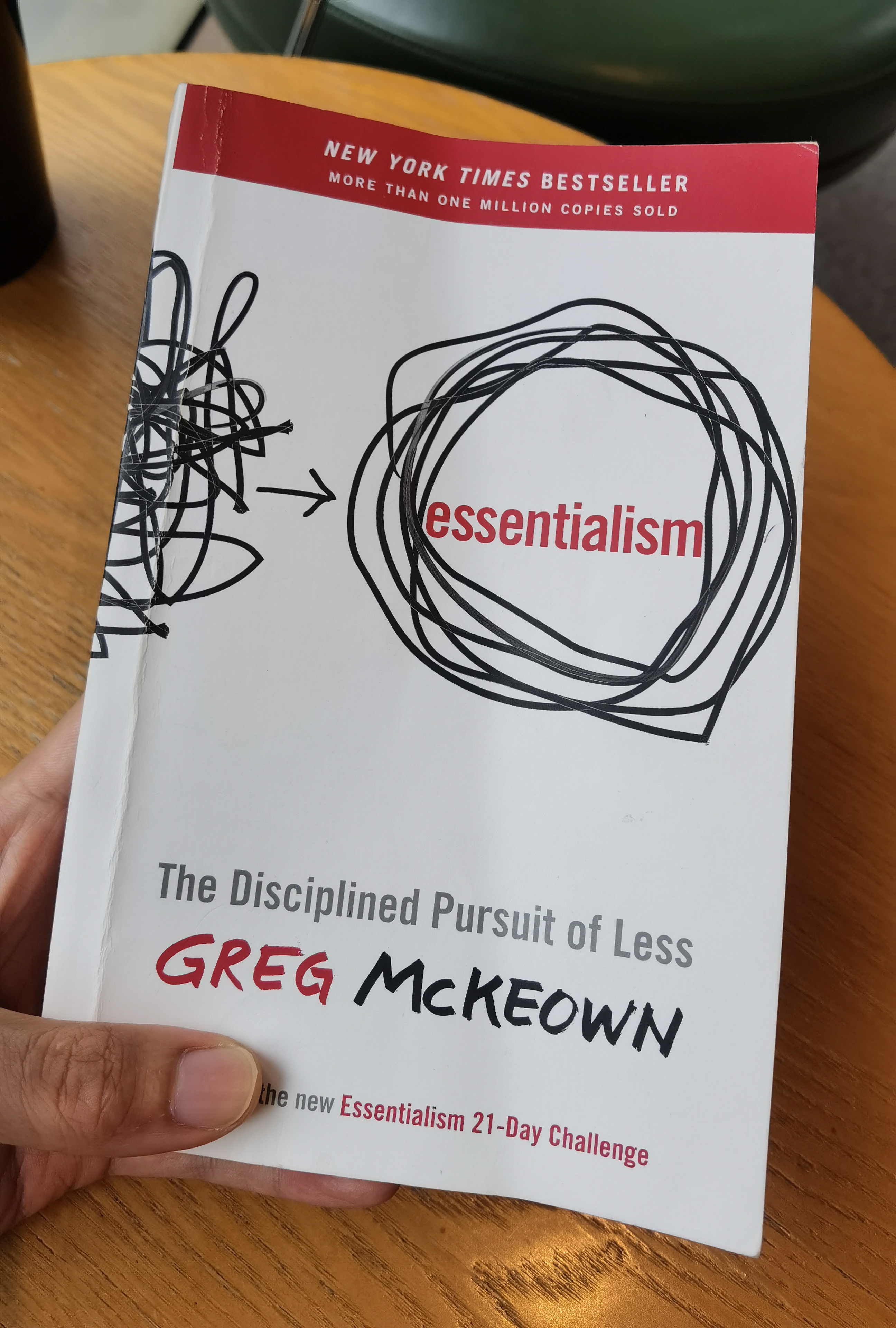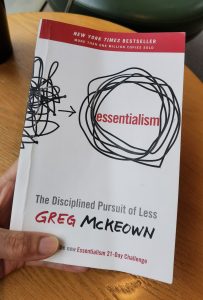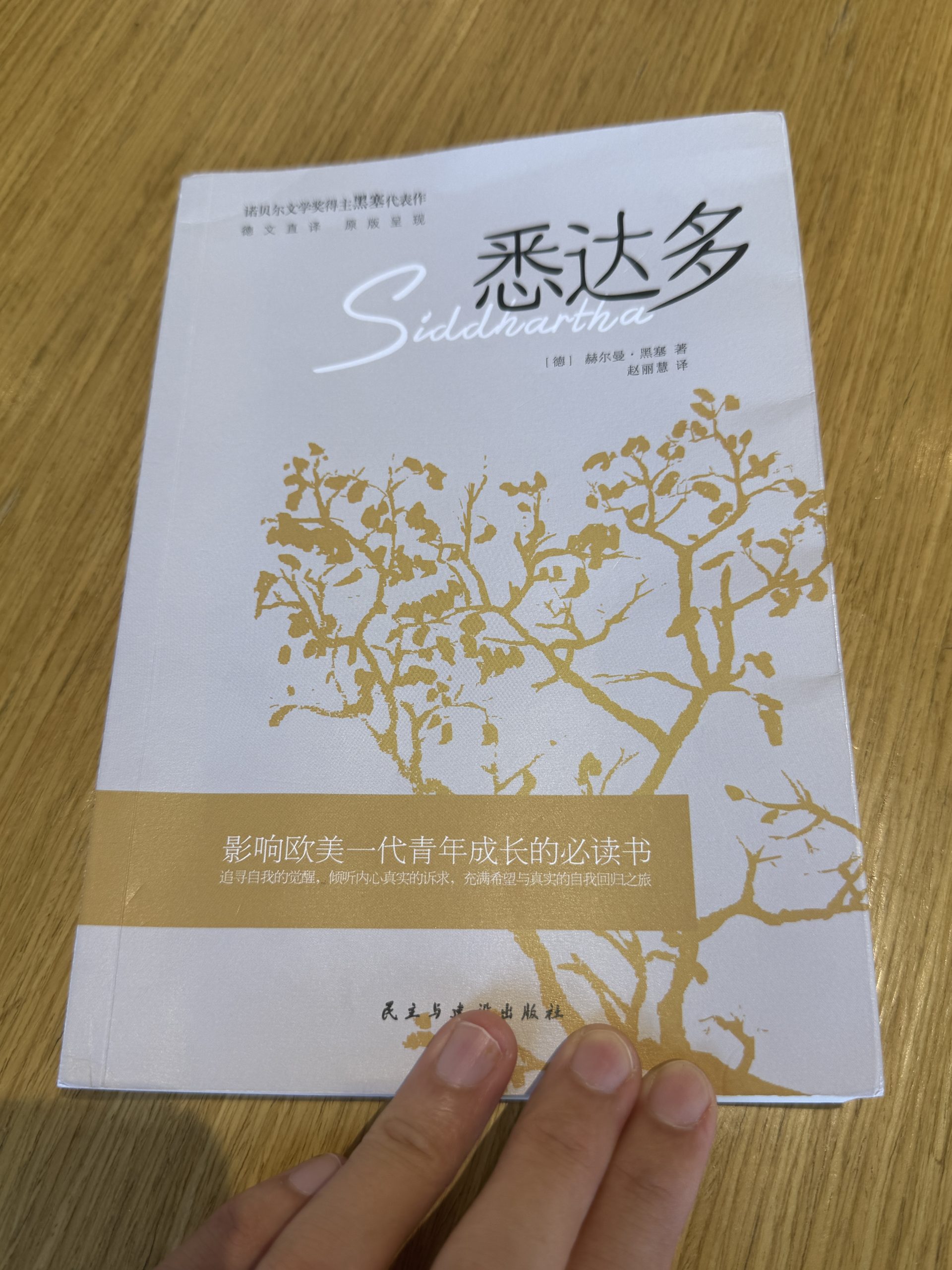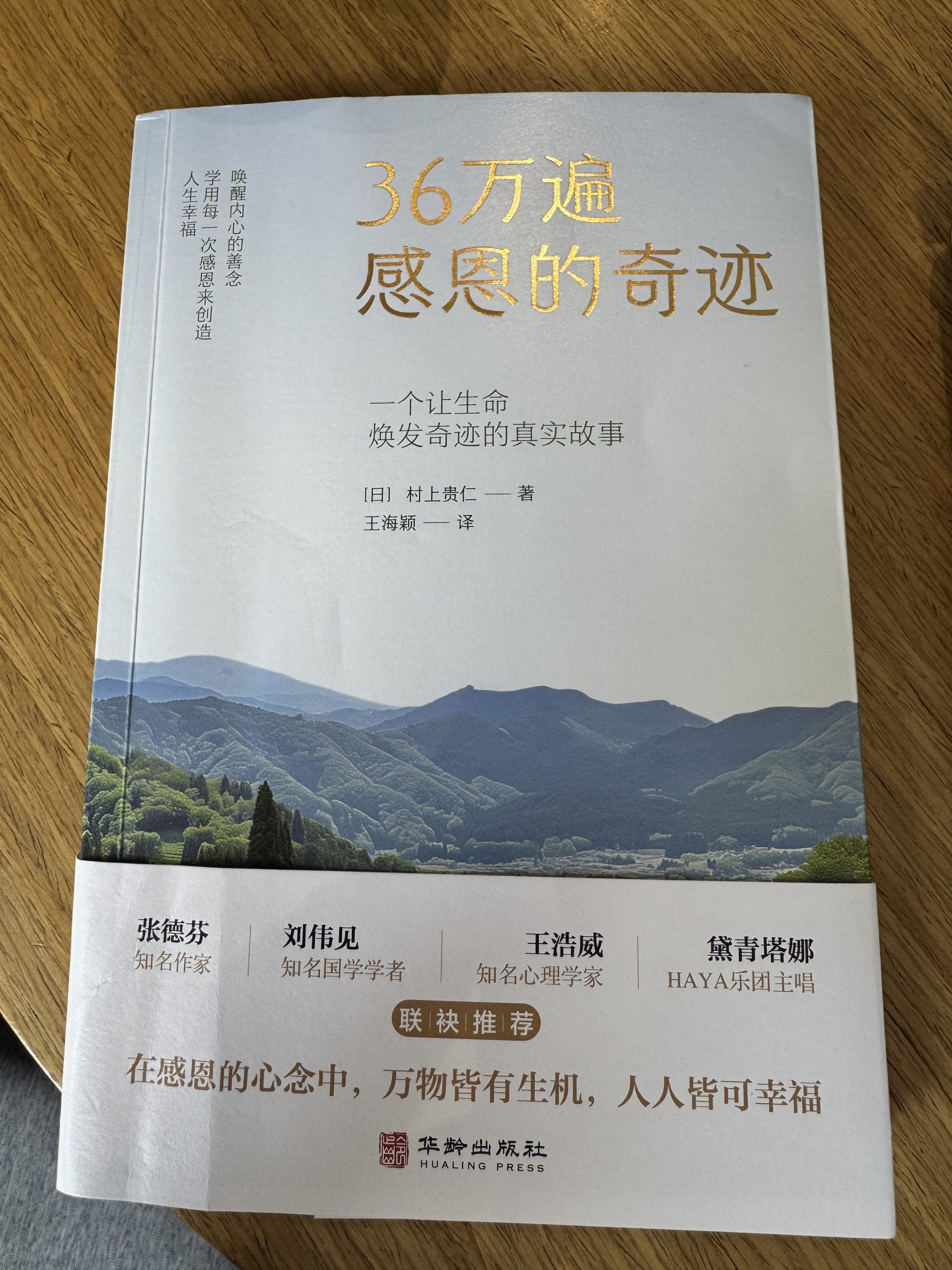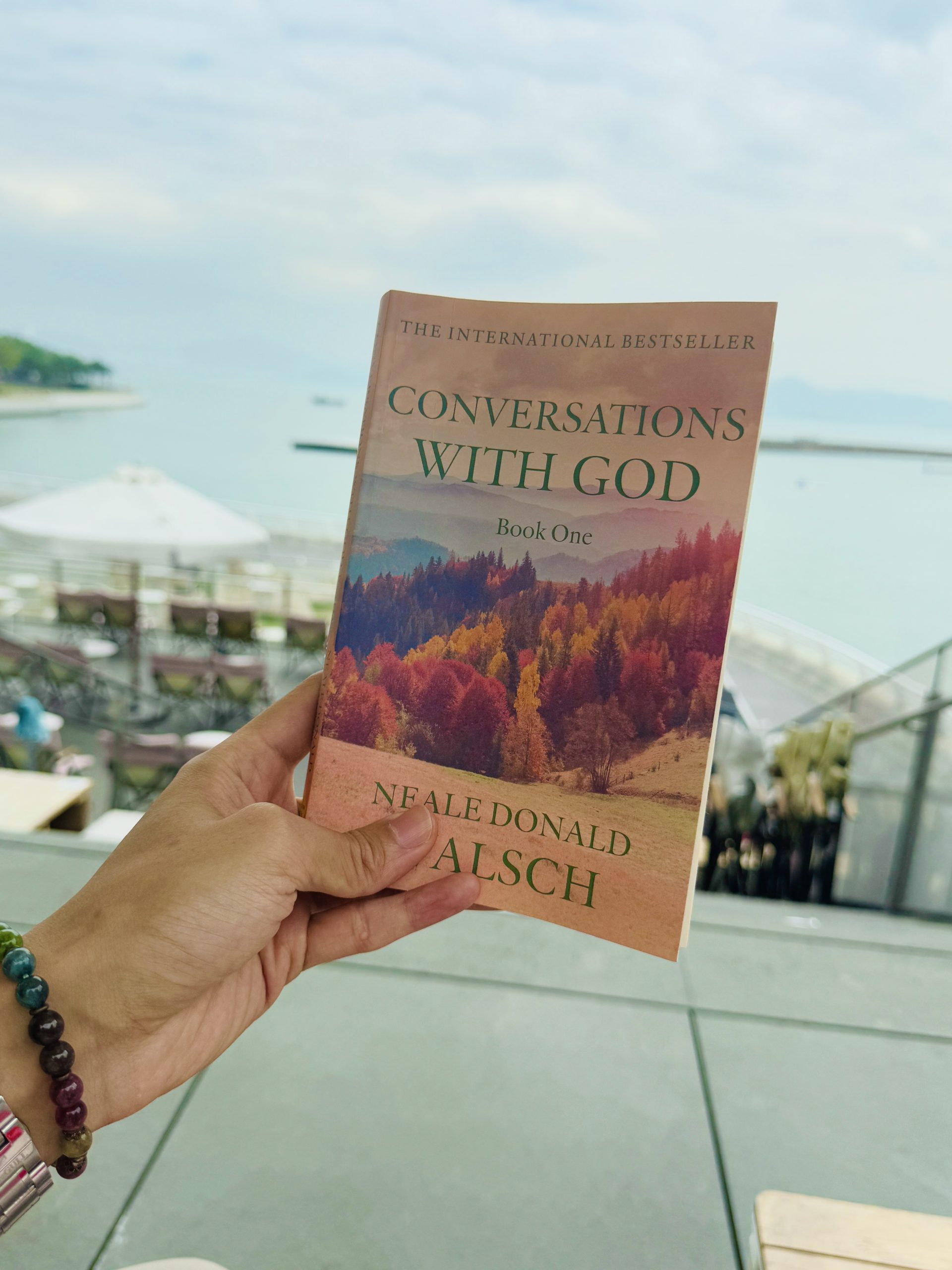”不只是要做正确的事,更要学会正确地做事”,排序和平衡是一门艺术~,要学会利用杠杆效应,举重若轻的欢喜工作、生活。
P2
“Is this the very most important thing I should be doing with my time and resources right now?”
真我在排序
P3
Instead of making just a millimeter of progress in a million directions he began to generate tremendous momentum towards accomplishing the things that were truly vital.
P4
almost everything is noise. He believes very few things are essential.
P5
Essentialism is not about how to get more things done; it’s about how to get the right things done, it’s about making the wisest possible investment of your time and energy.
P8
| nonessentialist | essentialist | |
|---|---|---|
| THINKS | I have to | I choose to |
| It’s all important | only a few things really matter | |
| how can i fit it all in | what are the trade-offs? | |
| DOES | reacts to what’s most pressing | pauses to discern what really matters |
| says “yes” to people without really thinking | pauses to discern what really matters | |
| tries to force execution at the last moment | removes obstacles to make execution easy | |
| GETS | takes on too much, and work suffers | chooses carefully in order to do great work |
| feels out of control | feels in control | |
| is unsure of whether the right things got done | gets the right things done | |
| feels overwhelmed and exhausted | experiences joy in the journey | |
P10
I would have made a fool’s bargain. in trying to keep everyone happy I had sacrificed what mattered most.
if you don’t prioritize your life, someone else will.
P12
the paradox of success
1.clarity of purpose.
2.increased options and opportunities
3.diffused efforts
4.undermine the very clarity
success can distract us from focusing on the essential things that produce success in the first place.
“the undisciplined pursuit of more”
P15
“decision fatigue”: the more choices we are forced to make, the more the quality of our decisions deteriorates
it’s not just information overload; it’s opinion overload.
P16
the word “priority” meant the very first or prior thing, only in the 1900s did we pluralize the term and start talking about priorities.
P18
will this activity or effort make the highest possible contribution toward my goal?
if I didn’t already own this how much would I spend to buy it?
you need a system to make executing your intentions as effortless as possible.
P19
how many times have you started your workday with a schedule and by 10:00A.M. you were already completely off track or behind?
it is a discipline you apply each and every time you are faced with a decision about whether to say yes or whether to politely decline.
P21
Essentialists actually explore more options than their nonessentialist counterparts
因地精进,种对对的种子

the purpose of the exploration is to discern the vital few from the trivial many
P23
people are effective because they say “no”, because they say “this isn’t for me”
P26
what if we stopped celebrating being busy as a measurement of importance? what if instead we celebrated how much time we have spent listening. pondering , meditating.
P25
when we surrender our ability to choose, something or someone else will step in to choose for us.
while we may not always have control over our options, we always have control over how we choose among them
options(things) can be taken away, while our core ability to choose(free will) cannot be.
P37
they didn’t know they had any choice other than to take the shocks. they had learned helplessness.
P38
these people don’t believe they have a choice in what opportunity, assignment, or challenge to take on. they believe they “have to do it all”.
we end up becoming a function of other people’s choices-or even a function of our own past choices.
P42
certain types of effort yield higher rewards than others.
what is the most valuable result I could achieve in this job?
more effort does not necessarily yield more results. “less but better” does
P45
we live in a world where almost everything is worthless and a very few things are exceptionally valuable.
P50
you have to look at every opportunity and say, “well, no… I’m sorry, we’re not going to do a thousand different things that really won’t contribute much to the end result we are trying to achieve.”
P52
I spent a half-hour on Sunday organizing my e-mail, to-do list, and calendar to make Monday morning easier. then I was working a few hours on Sunday, then all day.
P56
Essentialists see trade-offs as an inherent part of life, not as an inherently negative part of life. instead of asking, ”what do I have to give up?”, they ask, “what do I want to go big on?”
P64
we need space to escape in order to discern the essential few from the trivial many, stepping back to get perspective.
he is so consumed with these meetings he cannot find even an hour a month to strategize about his own career, let alone how to take his organization to the next level.
Nonessentialist is too busy doing to think about life, essentialist creates space to escape and explore life.
P66
in order to have focus we need to escape to focus.
P68
I blocked off eight hours a day to write: from 5:00 A.M. to 1:00P.M., five days a week, the basic rule was no e-mail, no calls, no appointments and no interruptions until after 1:00 P.M.
Setting aside distraction-free time in a distraction-free space to do absolutely nothing other than think.
“Can you remember what it was like to be bored? it doesn’t happen anymore”
but by abolishing any chance of being bred we have also lost the time we used to have to think and process.
P69
Jeff Weiner, the CEO of LinkedIn schedules up to two hours of blank space on his calendar everyday. he sees it as the primary way he can ensure he is in charge of his own day, instead of being at the mercy of it.
真我做主,未经审视的人生不值得一过
what the company will look like in three to five years; what’s the best way to improve an already popular product or address an unmet customer need;
“what you will look like in three or five years? what about people around you?”
for Jeff, creating space is more than a practice, a slogan or a buzz phrase, it’s part of a broader philosophy.
P70
on practice I’ve found useful is simply to read something from classic literature for the first twenty minutes of the day, as soon as I wake up, it centers my day.
P75
Being a journalist of your own life will force you to stop hyper-focusing on all the minor details and see the bigger picture,
静、定、慧
Essentialists are powerful observers and listeners, Nonessentialists listen too, but they listen while preparing to say something, they get distracted by extraneous noise.
nonessentialist hears everything being said, essentialist hears what is not being said,
言外之意,为什么他会这样说?
P78
we humans are forgetful creatures, think of a journal as like a storage device for backing up our brain’s faulty hard drive
P83
his father is almost a new person as he presents his children with their mended kite and launches into the song “Let’s go fly a kate.”
but then as we get older something happens, we are introduced t the idea that play is trivial, play is a waste of time.
Imagination is the source of every form of human achievement.
nothing fires up the brain like play.
P103
if the answer isn’t a definite yes, then it should be a no.
P105
the very act of applying selective criteria forces you to choose which perfect option to wait for, rather than letting other people, or the universe, choose for you, it forces you to make decisions by design, rather than default.
P106
nonessentialist says yes to almost every request or opportunity, essentialist says yes to only the top 10 percent of opportunities.
P110
if there’s one thing you are passionate about – and that you can be best at – you should do just that one thing.
P132
I did not set out to write a chapter about courage. but the deeper I have looked at the subject of Essentialism the more clearly I have seen courage as key to the process of elimination.
P134
the main thing is to keep the main thing the main thing.
why is it so hard in the moment to dare to choose what is essential over what is nonessential? we are unclear about what is essential. when this happens we become defenseless.
P135
innate fear of social awkwardness.
we don’t what to let someone down. the only way out of this trap is to learn to say no firmly, resolutely, and yet gracefully.
P137
denying the request is not the same as denying the person.
“I’m flattered that you thought of me but I’m afraid I don’t have the bandwidth” or “I would very much like to but I’m overcommitted.”
P138
everyone is selling something – an idea, a viewpoint, an opinion – in exchange for your time.
remember that a clear “NO” can be more graceful than a vague noncommittal “YES”
the “NO” repertoire
- the awkward pause
- the soft “no” (or the “no but”)
- “Let me check my calendar and get back to you”
- “I can’t do it, but X might be interested”
P167
How often do you feel your Saturday or Sunday is being hijacked by someone else’s agenda?
these are the people who make their problem our problem.
“you have to have your agenda at the first place”
